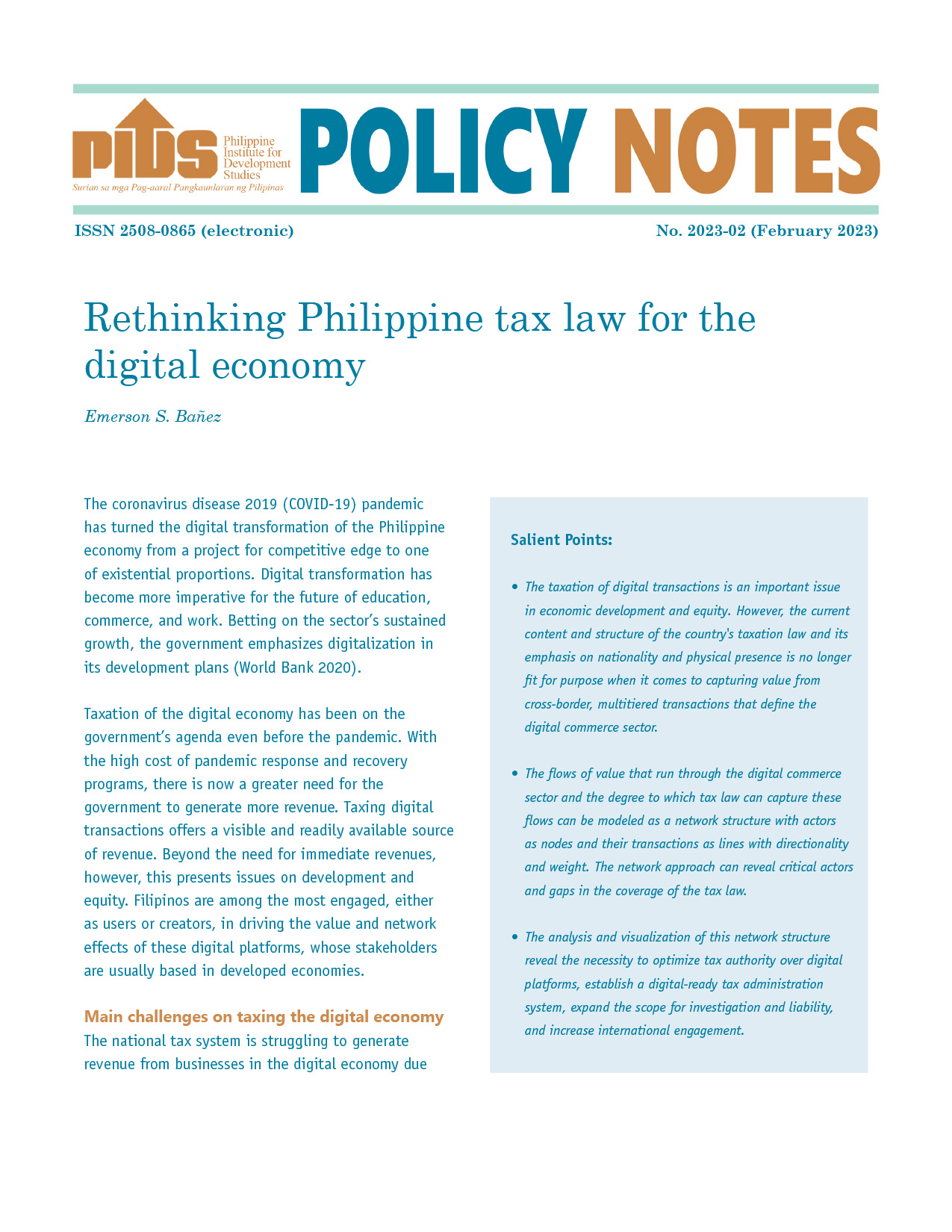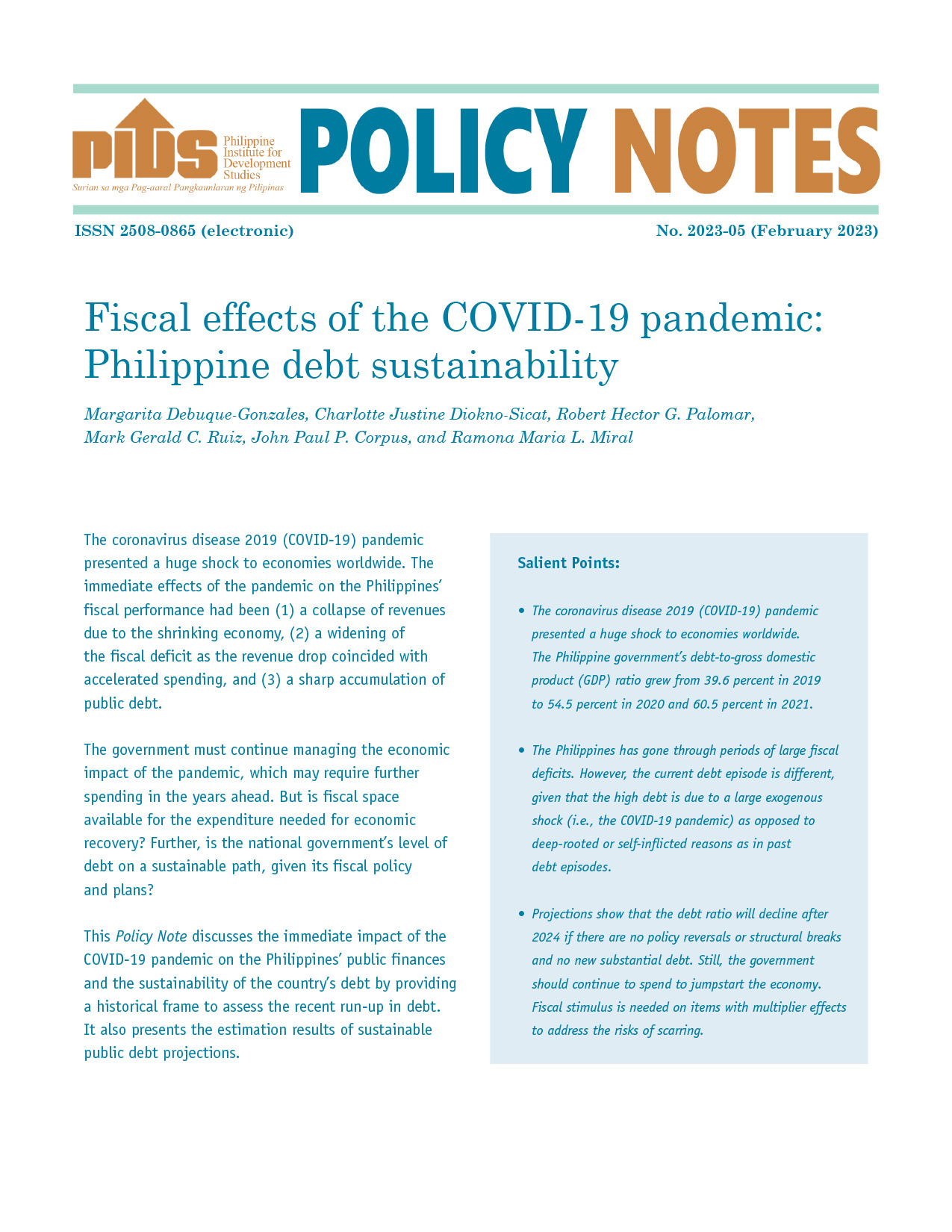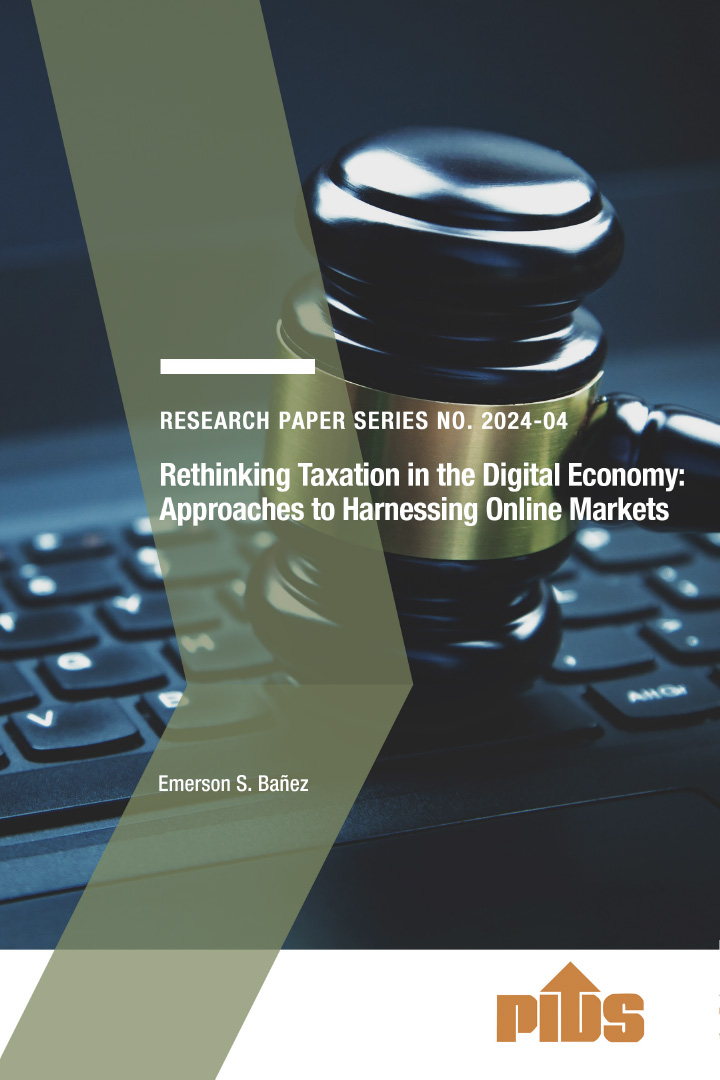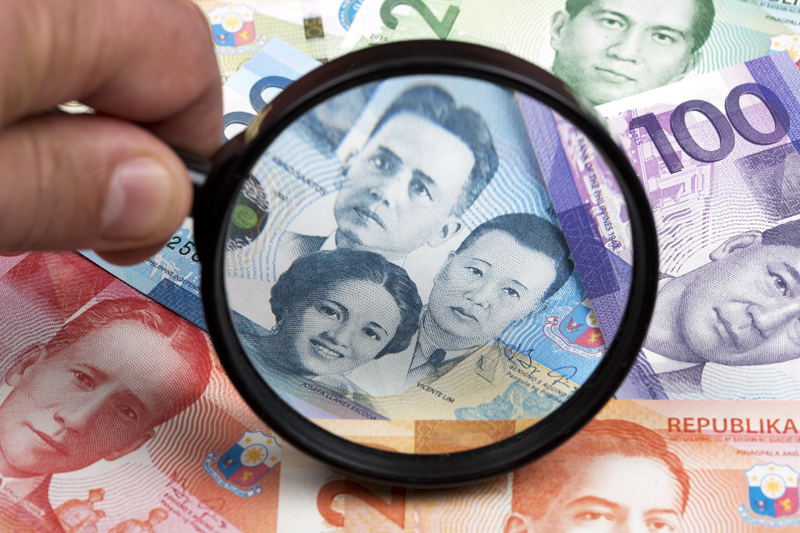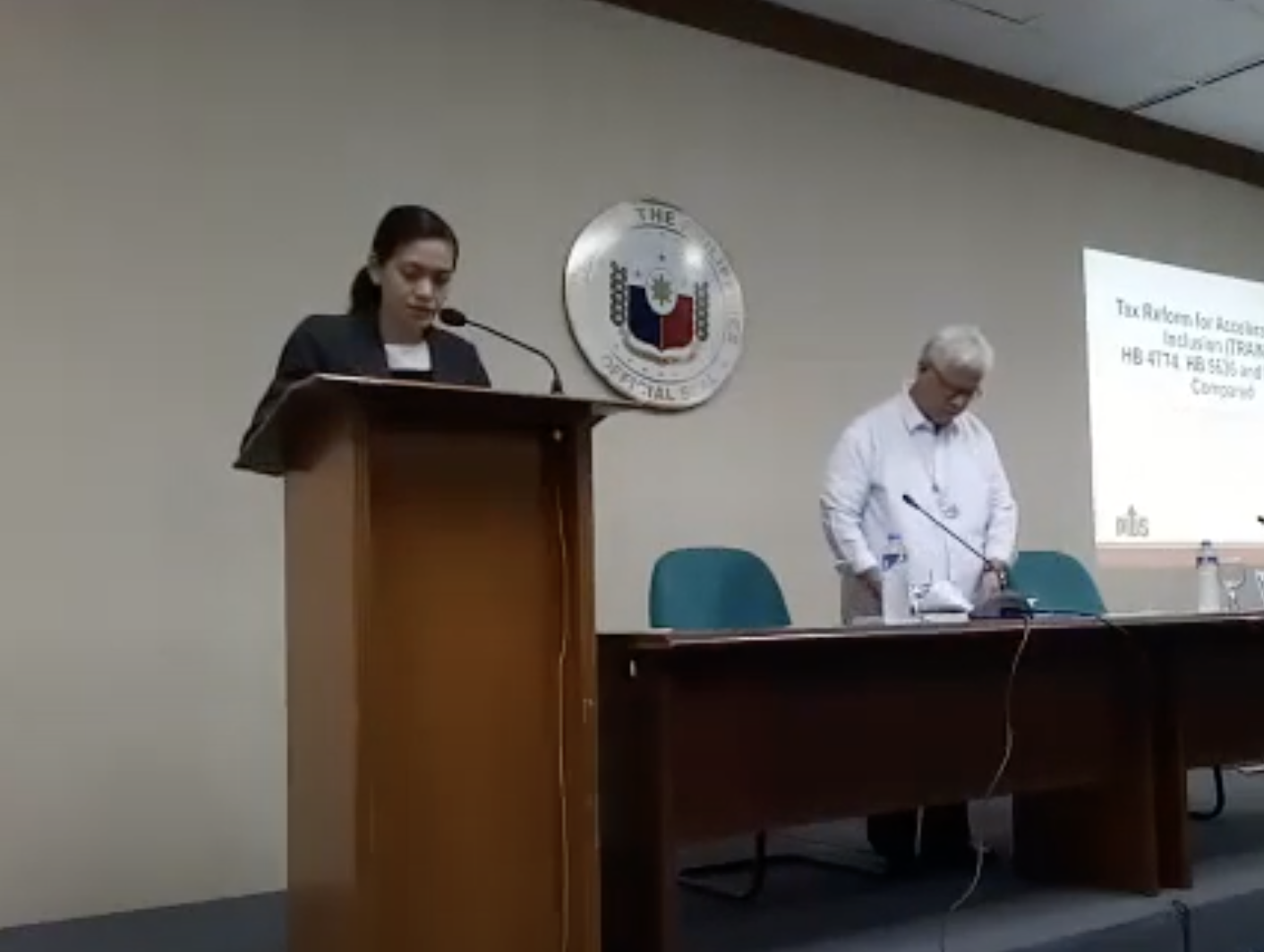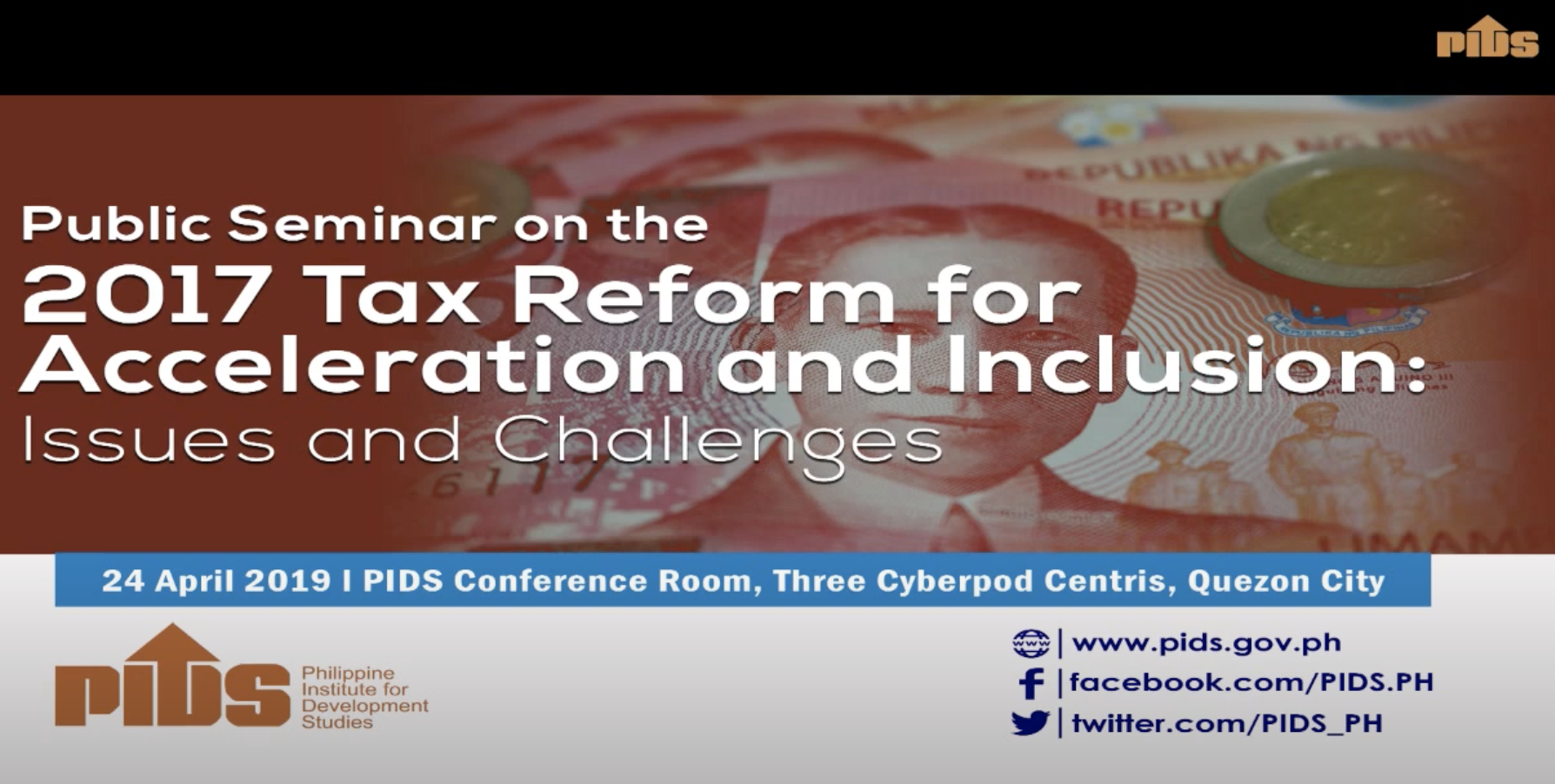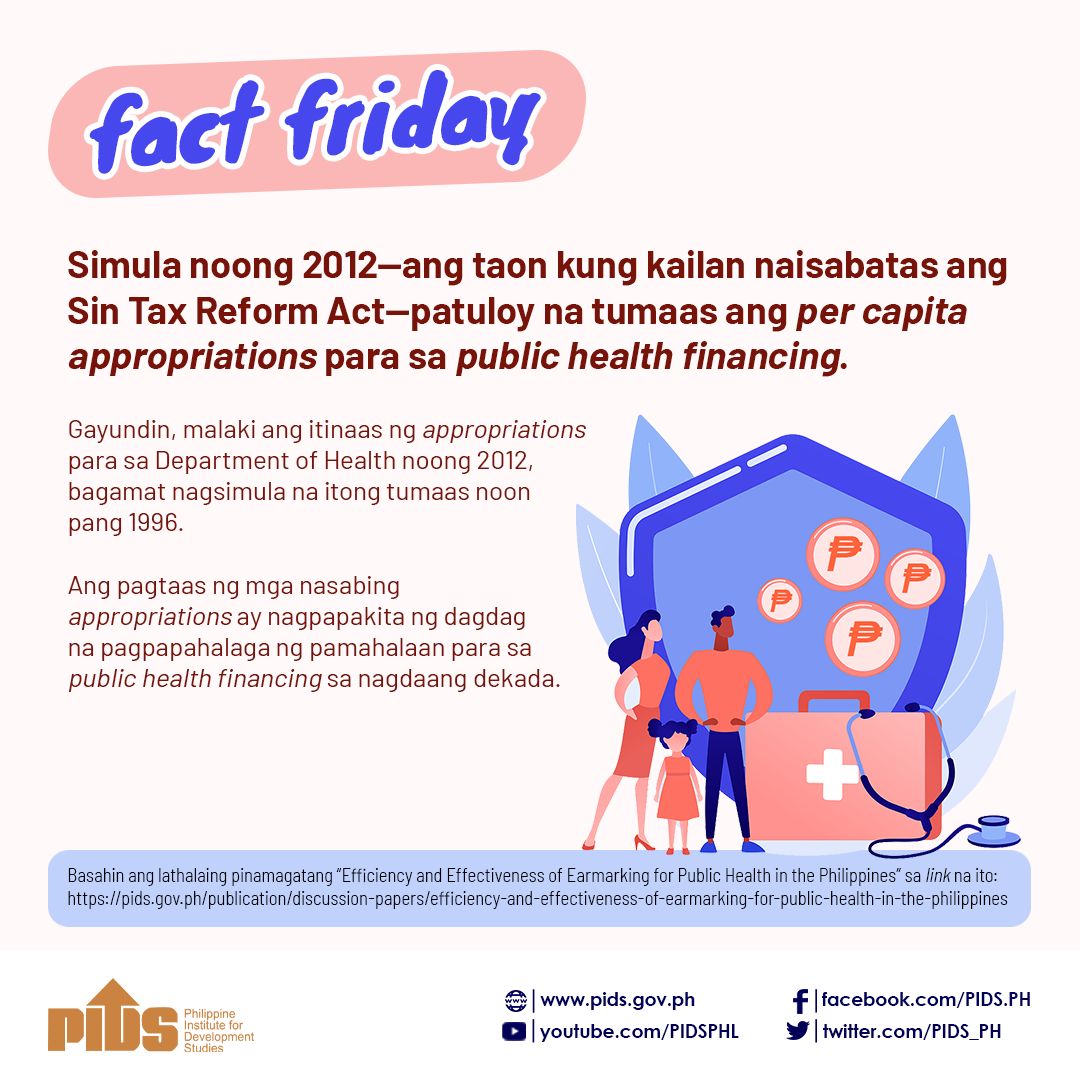Despite the projected revenues to be generated from the Tax Reform for Acceleration and Inclusion (TRAIN) Act, a study published by the Philippine Institute for Development Studies (PIDS) estimated that collection may fall short of the government’s target in the next three years.
In the study, titled “Assessment of Republic Act 10963: The 2017 Tax Reform for Acceleration and Inclusion,” PIDS Senior Research Fellow Rosario G. Manasan said total tax revenues may be reduced by P66.097 billion in 2018 and P33 billion in 2019. The TRAIN law is projected to generate additional revenues of P6 billion, or 0.03 percent of GDP, in 2020 onward.
The TRAIN also had an adverse impact on the poorest households, requiring the government to provide unconditional cash transfers of P300 to P400 a month in the next three to four years.
“These developments provide a more conservative view on the ability of the TRAIN to fund the present administration’s ambitious ‘Build, Build, Build’ program,” Manasan said.
“These findings highlight the need for compensatory transfers to protect those who are most negatively affected by the TRAIN, especially the poorest two or the poorest four deciles, through targeted subsidies for three to four years,” she added.
While Republic Act (RA) 10963 reduced the personal income tax (PIT) liability of both compensation income earners and the self-employed and professionals, it also raised the excise taxes on certain products and broadened the coverage of the value-added tax (VAT).
Manasan said the tax revenue estimates of the incremental revenues are lower than the official estimates, which place the revenue gains from the TRAIN law at P63 billion in 2018, P104 billion in 2019 and P140 billion in 2020.
She said actual revenues from the personal income tax may fall below its 2018 target by P43 billion, which suggests that the revenue loss from PIT reform may actually be closer to P190 billion, larger than the finance department’s P146 billion estimate by P43 billion and higher than this paper’s P210 billion estimate by P20.5 billion.
Further, she said the collections of the Bureau of Internal Revenue and Bureau of Customs in October indicate that excise and VAT revenues may fall short of their collection targets for the entire year of 2018 by a combined total of P36 billion.
‘Regressive character’
Manasan said the change introduced by the TRAIN increased the burden of households, particularly those belonging to the poorest decile, which saw a 3.5- percent increase in tax burden as a percentage of household income.
She added that as incomes rise, the impact of the TRAIN on households decline as a percentage of household income to 2.8 percent of household income for the richest families. This indicated a “regressive character of the reform.”
“The aggregate tax burden of households belonging to deciles 1 to 8 is projected to increase as result of the combined effect of the reduction in the personal income tax, the expansion of the coverage of the VAT and the increase in the excise tax on petroleum products, cigarettes, sweetened beverages and coal under RA 10963, while that of households belonging to deciles 9 and 10 is projected to decrease,” the study read.
Manasan also said that while there were compensatory measures, such as the implementation of the Unconditional Cash Transfer Program for the 4Ps beneficiaries, these only started in March.
There were also fuel vouchers granted to qualified franchise holders of public-utility jeepneys, but it also started late when the TRAIN was already in full effect.
She added that fare discounts for minimum-wage earners, the unemployed and the poorest 50 percent of the population have not yet been implemented because of the absence of implementing mechanisms.
“The increase in the price of basic goods as a result of RA 10963 was confounded by three extraneous events—the depreciation of the peso, the rise in the world price of oil and the shortage of NFA [National Food Authority] rice in the market,” Manasan said.
The TRAIN law has been blamed as one of the causes of high inflation, which has averaged 5.2 percent as of November. The highest increase in inflation was felt in September and October in 2018 when inflation reached 6.7 percent.
Due to high inflation, Filipinos need to shell out an additional P17 today for every P100 they used to spend buying various goods and services six years ago, according to the Philippine Statistics Authority.
This also means that Filipinos’ P10,000 in 2012 is now only worth P8,300 due to the increase in inflation. This means the value lost due to high prices is P1,700 in six years.
She added that as incomes rise, the impact of the TRAIN on households decline as a percentage of household income to 2.8 percent of household income for the richest families. This indicated a “regressive character of the reform.”
“The aggregate tax burden of households belonging to deciles 1 to 8 is projected to increase as result of the combined effect of the reduction in the personal income tax, the expansion of the coverage of the VAT and the increase in the excise tax on petroleum products, cigarettes, sweetened beverages and coal under RA 10963, while that of households belonging to deciles 9 and 10 is projected to decrease,” the study read.
Manasan also said that while there were compensatory measures, such as the implementation of the Unconditional Cash Transfer Program for the 4Ps beneficiaries, these only started in March.
There were also fuel vouchers granted to qualified franchise holders of public-utility jeepneys, but it also started late when the TRAIN was already in full effect.
She added that fare discounts for minimum-wage earners, the unemployed and the poorest 50 percent of the population have not yet been implemented because of the absence of implementing mechanisms.
“The increase in the price of basic goods as a result of RA 10963 was confounded by three extraneous events—the depreciation of the peso, the rise in the world price of oil and the shortage of NFA [National Food Authority] rice in the market,” Manasan said.
The TRAIN law has been blamed as one of the causes of high inflation, which has averaged 5.2 percent as of November. The highest increase in inflation was felt in September and October in 2018 when inflation reached 6.7 percent.
Due to high inflation, Filipinos need to shell out an additional P17 today for every P100 they used to spend buying various goods and services six years ago, according to the Philippine Statistics Authority.
This also means that Filipinos’ P10,000 in 2012 is now only worth P8,300 due to the increase in inflation. This means the value lost due to high prices is P1,700 in six years.

